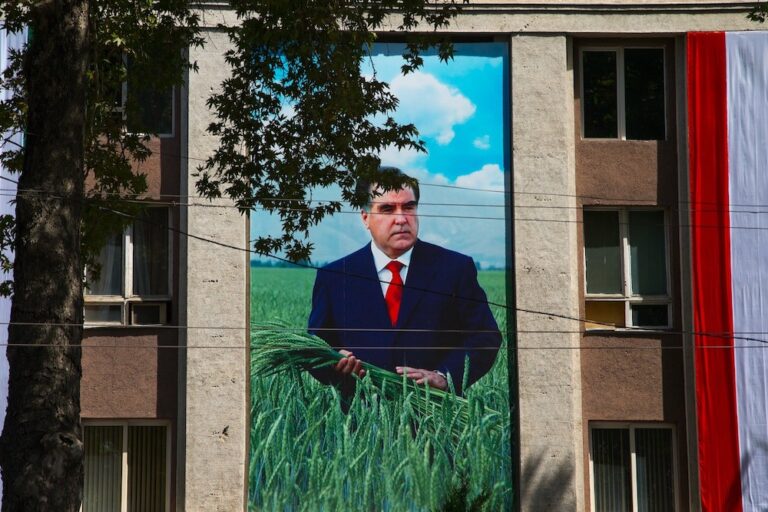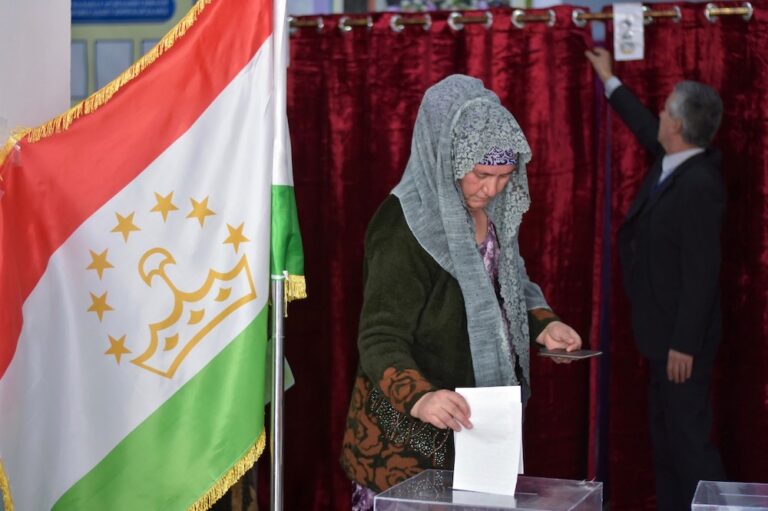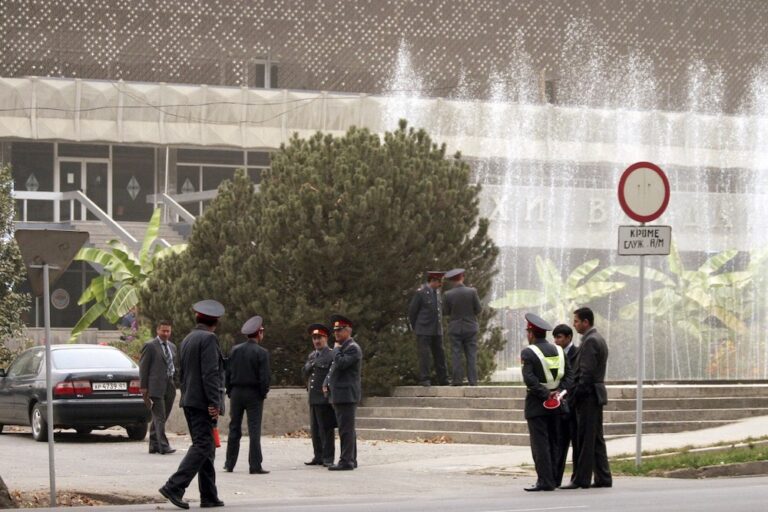(HRW/IFEX) – The following is a Human Rights Watch press release: PRESIDENTIAL ELECTIONS IN TAJIKISTAN A FARCE Rights group details electoral manipulation (New York, October 28, 1999)-Presidential elections to be held on November 6, 1999 in Tajikistan will be a farce, Human Rights Watch charged today. The government has excluded opposition presidential candidates from the […]
(HRW/IFEX) – The following is a Human Rights Watch press release:
PRESIDENTIAL ELECTIONS IN TAJIKISTAN A FARCE
Rights group details electoral manipulation
(New York, October 28, 1999)-Presidential elections to be held on November
6, 1999 in Tajikistan will be a farce, Human Rights Watch charged today.
The government has excluded opposition presidential candidates from the
ballot, sought to restrict the activities of political parties, and imposed
additional curbs on the media. In effect, the presidential race is limited
to one candidate, the incumbent President Emomali Rakhmonov.
In protest, the United Tajik Opposition (UTO) has withdrawn from the body
responsible for implementing the 1997 peace accord between the government
and the UTO, effectively suspending the peace process. The UTO has also
withdrawn from the Central Electoral Commission.
“Tajikistan is making no progress toward democracy,” said Holly Cartner,
Executive Director of Human Rights Watch’s Europe and Central Asia Division.
“The government has demonstrated blatant bad faith in creating conditions
for a fair and open vote.”
Earlier this month, the three opposition presidential candidates announced
their plans to boycott the elections, in protest against authorities’
efforts to block the collection of signatures necessary for their
registration as candidates. On October 21, 1999, two of the candidates were
denied registration by the Supreme Court. But in an attempt to preserve the
veneer of the democratic process, the government granted registration to the
Islamic Renaissance Party candidate, Davlat Usmon. However, Mr. Usmon has
requested that his registration be canceled.
Restrictions on freedom of association, freedom of expression, and personal
security have become particularly severe in recent months.
“Coming out of a civil war, Tajikistan is often described as the special
case in Central Asia,” said Ms. Cartner. “But there can be no excuse this
time around for its failure to meet its international commitments.”
These are the first elections to be held since the June 27, 1997
government-United Tajik Opposition (UTO) peace accord, which brought to an
end five years of civil war. Notably, the 1994 presidential elections,
which brought President Rakhmonov to power, were also marred by flagrant
fraud.
A more detailed analysis of political events in Tajikistan is available at
http://www.hrw.org.


